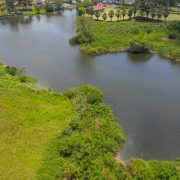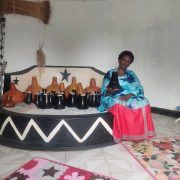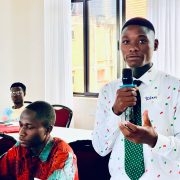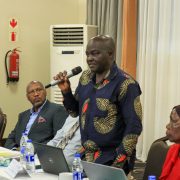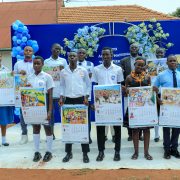As Uganda joined the rest of the world to mark the International Day of the World’s Indigenous Peoples, which is marked annually on the 9th of August, the Cross-Cultural Foundation of Uganda (CCFU) and the Equal Opportunities Commission (EOC) used the occasion to spotlight the continued marginalisation of Indigenous Minority Groups (IMGs) across the country.

At a dialogue and exhibition held at Ndere Cultural Centre, stakeholders from Karamoja, Rwenzori, Elgon, and West Nile, alongside duty bearers from civil society, academia and government and the media, reflected on the theme: “Indigenous Peoples’ Right to Self-Determination: A Pathway for Food Security and Sovereignty.”
But beneath the celebration was a sobering message: Indigenous communities in Uganda remain excluded from ancestral lands, education systems, political structures, and constitutional recognition.

“Despite decades of advocacy, many Indigenous communities still lack access to their ancestral lands and sacred sites due to restrictions as a result of the creation of national parks and reserves,” said Barbra Babweetera, Executive Director of CCFU. “This threatens not just their livelihoods but their cultural identity.”
Communities such as the Batwa and Benet called for regulated access to cultural sites, compensation for forced evictions, and inclusion in revenue-sharing from protected areas. Others expressed concern over the erosion of Indigenous languages, replaced in schools by dominant regional languages, leading to a decline in cultural identity.
Even more critically, groups such as the Benet, Bakingwe, Bagabo, and Maragoli remain unrecognised in the 1995 Ugandan Constitution, limiting access to national IDs, voting rights, and other basic services.
“Our names are missing, or misrepresented, in national records,” said one community leader. “Without recognition, we are invisible in the eyes of the state.”
Ms. Safia Nalule Juuko, Chairperson of the Equal Opportunities Commission, reaffirmed the state’s responsibility:
“Indigenous communities continue to be left behind in development planning and service delivery. We are working to ensure their voices are heard and their rights to land, education, and cultural identity are protected.”
Chief guest Mariam Wangadya, Chairperson of the Uganda Human Rights Commission, emphasised that communities such as the Batwa are inherently gatherers and require access to natural resources to survive. She committed that the Commission will continue working toward ensuring that IMG’s human rights concerns, such as access to education, are advocated for and addressed.
The dialogue also highlighted limited political representation and the loss of heritage practices, from traditional medicine to crafts. CCFU and EOC called for constitutional amendments, equity in education – including the integration of IMG languages in the education system, improved access to natural resources and the creation of a national platform to represent IMGs at both national and international levels.
For years, we felt invisible,” said Emmanuel Kyalimpa, Chairperson of the Rwenzori IMG Platform. “Now we are reclaiming our stories, demanding access to our sacred sites, and engaging leaders who once ignored us. Recognition is not a favour, it is our right.”
As Uganda celebrates its diversity, the question remains: How much longer will some of its original communities have to wait to be fully seen and heard?
International Day of the World’s Indigenous Peoples Day is commemorated on 9th August globally.



